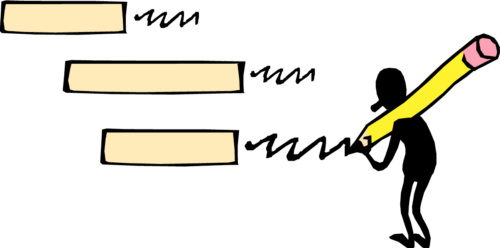Facilitative leadership provides the best assurance that team leads/ project managers can overcome project pitfalls.
Borrowing from the PMBoK (i.e., Project Management Institute Body of Knowledge) and other published sources, the following are seven of the most common project pitfalls. Meeting leadership comments about each follow.

Using Facilitative Leadership
To Overcome Project Pitfalls
7 Project Pitfalls
- Abandonment of Planning
- Feature (Scope) Creep
- Omitting Necessary Tasks
- Overly Optimistic Schedule
- Suboptimal Requirements Definition
- Underestimating Testing
- Weak Team
Abandonment of Planning
Do not abandon your plan or the planning effort. No matter how proactive you are, some contributors will underperform, customers will request changes, and technical issues will prevent you from delivering some features on time. It’s not a question of “if” but “when”. As soon as you start to deviate from your plan, intelligently refactor, but stick to it. Never abandon your plan.
Feature (Scope) Creep
As time goes on, customers learn more about their needs and they come up with new features and ways of improving existing ones. Don’t let these changes throw your project plan out of control. Gather the feedback, analyze it, prioritize it, document it, and schedule the changes as mutually agreed upon. You’re not going to build the perfect product in one release. Deliver on your existing commitments, and try to facilitate a deeper understanding of many of the change requests. Omissions can be quite costly, so don’t immediately discount the value of understanding.
Omitting Necessary Tasks
A project schedule should not simply comprise the tasks required to develop product and process features. It should also include other derivative activities, such as interacting with customers, writing detailed functional specifications, and receiving technical training. Team-support activities cannot be skipped and therefore should not be ignored when baselining a project schedule.
Overly Optimistic Schedule
Meeting schedules should be aggressive, yet realistic. Demanding an overly optimistic schedule greatly reduces your chance of completing a project on time. Be aggressive with your plan, but remain realistic.
“Even particularly smart people in extremely high-performing situations will consistently underestimate how much time it takes to complete certain tasks.”—Daniel Kahneman, Nobel Prize
Suboptimal Requirements Definition
While showing illusionary progress, coding before requirements gathering actually delays project completion. Spending time early refining requirements can save weeks later on.
Underestimating Testing
Projects tend to underestimate how much effort is required to test a major release. As a rule of thumb, one-third of the entire project should be spent testing and fixing defects for major releases. A consensual understanding of test results and implications is key to stakeholder ownership.
Weak Team
Various resources claim that there is as much as a ten-to-one efficiency ratio between top performers and mediocre ones. Second-rate members contribute to project failures in many ways. They deliver late, do stuff that doesn’t support the project, and allow defects in their work that lack the level of quality deemed acceptable by you and other stakeholders. Select your team members carefully. At the end of the day, even the best project manager can’t succeed with a weak team.
______
Don’t ruin your career by hosting bad meetings. Sign up for a workshop or send this to someone who should. MGRUSH workshops focus on meeting design and practice. Each person practices tools, methods, and activities every day during the week. Therefore, while some call this immersion, we call it the road to building high-value facilitation skills.
Our workshops also provide a superb way to earn up to 40 SEUs from the Scrum Alliance, 40 CDUs from IIBA, 40 Continuous Learning Points (CLPs) based on Federal Acquisition Certification Continuous Professional Learning Requirements using Training and Education activities, 40 Professional Development Units (PDUs) from SAVE International, as well as 4.0 CEUs for other professions. (See workshop and Reference Manual descriptions for details.)
Want a free 10-minute break timer? Sign up for our once-monthly newsletter HERE and receive a timer along with four other of our favorite facilitation tools, free.

Terrence Metz, president of MG RUSH Facilitation Training, was just 22-years-old and working as a Sales Engineer at Honeywell when he recognized a widespread problem—most meetings were ineffective and poorly led, wasting both time and company resources. However, he also observed meetings that worked. What set them apart? A well-prepared leader who structured the session to ensure participants contributed meaningfully and achieved clear outcomes.
Throughout his career, Metz, who earned an MBA from Kellogg (Northwestern University) experienced and also trained in various facilitation techniques. In 2004, he purchased MG RUSH where he shifted his focus toward improving established meeting designs and building a curriculum that would teach others how to lead, facilitate, and structure meetings that drive results. His expertise in training world-class facilitators led to the 2020 publication of Meetings That Get Results: A Guide to Building Better Meetings, a comprehensive resource on effectively building consensus.
Grounded in the principle that “nobody is smarter than everybody,” the book details the why, what, and how of building consensus when making decisions, planning, and solving problems. Along with a Participant’s Guide and supplemental workshops, it supports learning from foundational awareness to professional certification.
Metz’s first book, Change or Die: A Business Process Improvement Manual, tackled the challenges of process optimization. His upcoming book, Catalyst: Facilitating Innovation, focuses on meetings and workshops that don’t simply end when time runs out but conclude with actionable next steps and clear assignments—ensuring progress beyond discussions and ideas.



